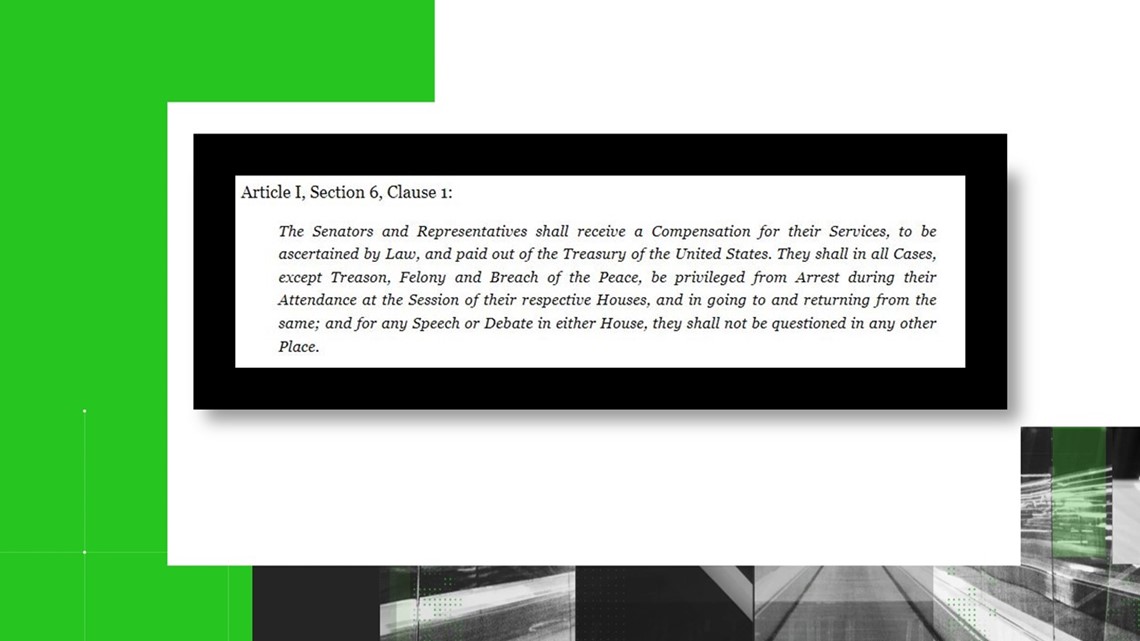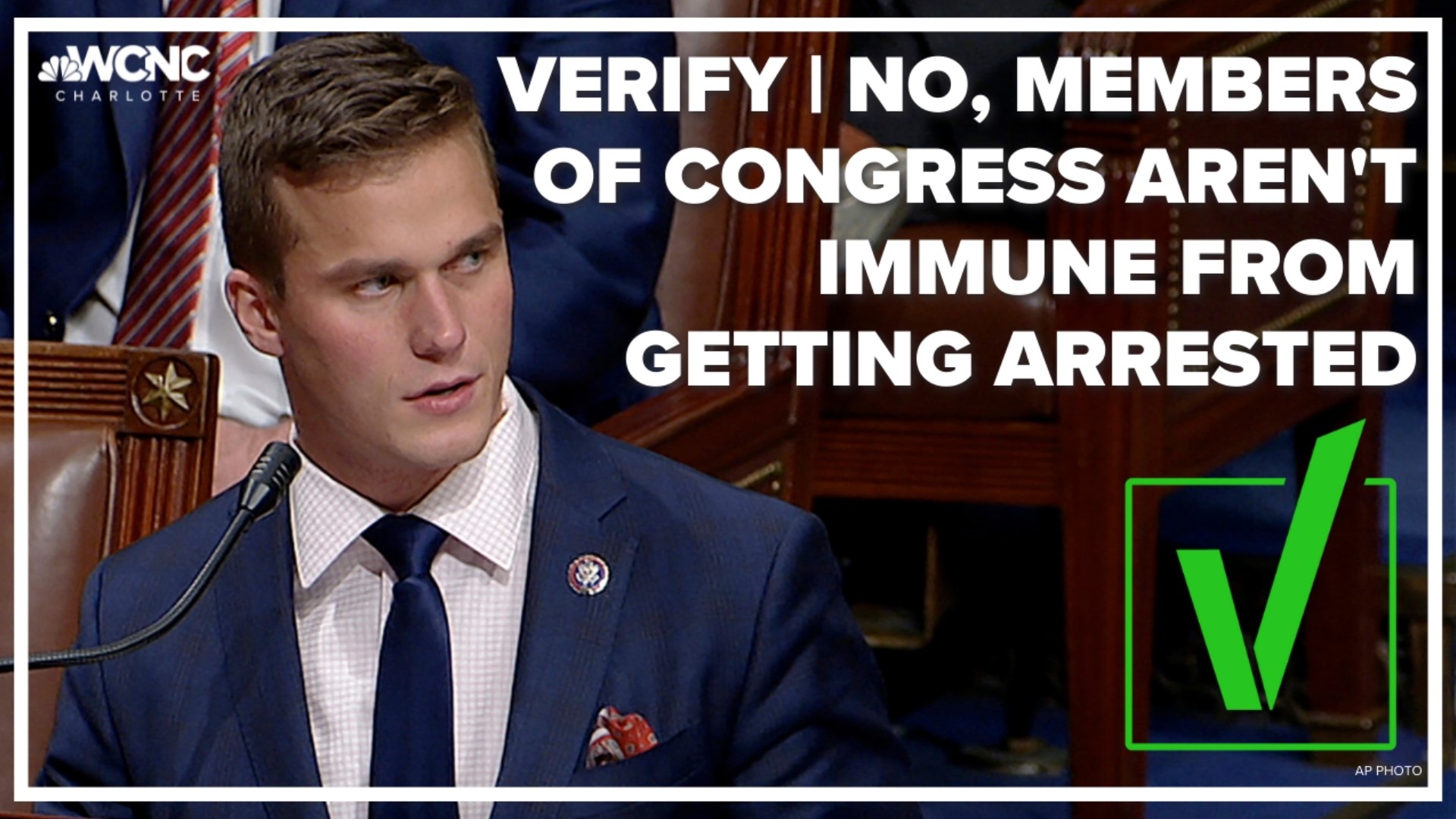CHARLOTTE, N.C. — On Tuesday, Rep. Madison Cawthorn was cited by Charlotte-Mecklenburg Police for allegedly carrying a loaded handgun into the airport. TSA agents stopped him before he could bring the gun onto an airplane.
Cawthorn's case is adding more fuel to existing online claims that the Constitution exempts members of Congress from certain types of arrest.
THE QUESTION
Do members of Congress have immunity from criminal arrest while Congress is in session?
OUR SOURCES
THE ANSWER
No, members of Congress do not have immunity from criminal arrest while Congress is in session.
WHAT WE FOUND
A look at the books shows why some think lawmakers have more legal leeway.
Below is Article 1, Section 6, Clause 1 in the Constitution.


It reads, "Senators and Representatives...shall in all cases, except treason, felony, and breach of peace, be privileged from arrest during their attendance at the session of their respective houses...and while going to and from sessions."
Sklansky said it is a measure tailored for those times.
"At the time that the Constitution was adopted, it was common in civil lawsuits for people to be arrested," Sklansky said. "And the framers of the Constitution didn't want that to interfere with the ability of a member of Congress to carry out his or her duties."
Nowadays, Sklansky said, the rule is pretty much obsolete.
"As long as we don't have civil arrests, this clause doesn't get called on much because it hasn't been interpreted for over a century to apply to criminal arrests," Sklansky said. "And it doesn't apply to summonses and civil or criminal cases."
In fact, the clause's entry on constitution.congress.gov contains the following footnote:
This clause is practically obsolete. It applies only to arrests in civil suits, which were still common in this country at the time the Constitution was adopted. It does not apply to service of process in either civil or criminal cases. Nor does it apply to arrest in any criminal case. The phrase treason, felony or breach of the peace is interpreted to withdraw all criminal offenses from the operation of the privilege.
VERIFY is dedicated to helping the public distinguish between true and false information. The VERIFY team, with help from questions submitted by the audience, tracks the spread of stories or claims that need clarification or correction. Have something you want VERIFIED? Text lus at 704-329-3600 or visit /verify.

